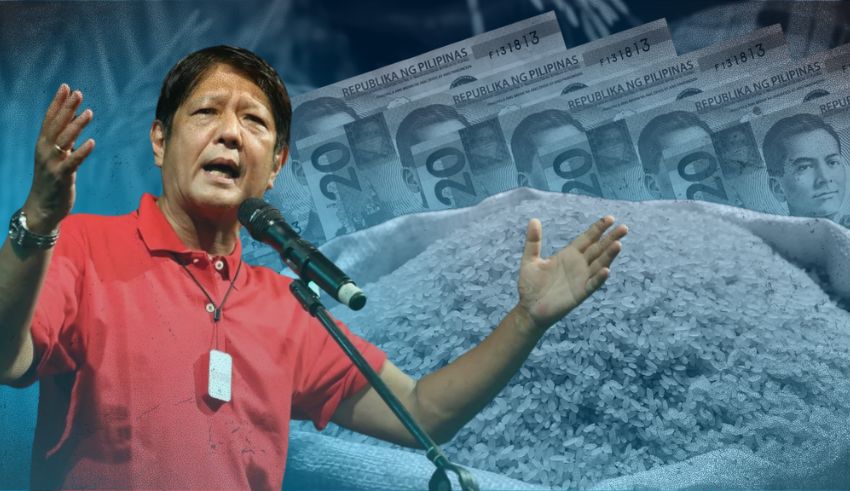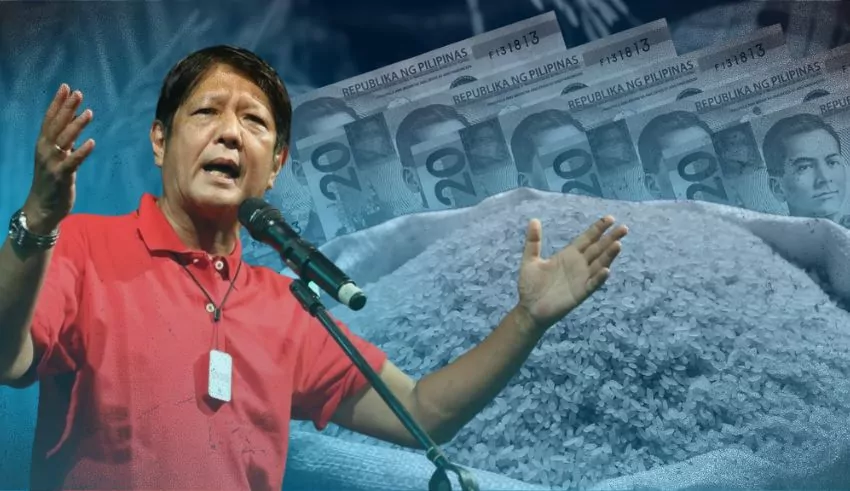

(c)Inquirer.net
As the Philippines approaches a year since Bongbong Marcos took office, the problem of the P20/kg rice price has become a dilemma that requires attention and serious analysis. Rice’s low price raises concerns about the ramifications for farmers’ livelihoods, food security, and the agricultural landscape as a whole.
While the availability of rice at such a low price may appear to benefit consumers at first, it has revealed underlying problems in the agriculture industry. The problem is to strike a fine balance between maintaining fair recompense for rice farmers who work tirelessly to ensure the nation’s food supply and ensuring cheap food costs for consumers.
The problem necessitates a thorough investigation of the elements that contribute to the P20/kg rice conundrum. This includes assessing the impact of policies, market dynamics, production costs, and government interventions on rice price structure.
While the cheap price may provide consumers with short-term respite, it may pose long-term hazards to the agriculture economy. Inadequate farm revenue can inhibit agricultural production and investment, resulting in lower crop yields and degraded food security in the future.
Solving this dilemma necessitates a diverse strategy. It necessitates the implementation of agricultural support and uplift measures, such as providing farmers with access to resources, technology, and financial help. Furthermore, thorough market processes and pricing methods are required to promote a just and sustainable rice business.
It is critical for the government, policymakers, and stakeholders to work together to develop new solutions that strike a balance between reasonable rice pricing and equitable farmer remuneration. This entails investigating techniques that can stabilize prices, improve productivity, promote agricultural diversification, and boost the sector’s overall competitiveness.
Furthermore, public awareness campaigns and education programs might help rice farmers have a better knowledge of the issues they confront. Educating consumers on the necessity of supporting local agriculture and the potential implications of artificially cheap costs can build a sense of responsibility and promote more sustainable purchasing patterns.
The P20/kg rice problem gives a chance for debate, collaboration, and forward-thinking solutions as the country reflects on Bongbong Marcos’ one-year administration. The Philippines can secure the well-being of its farmers, maintain food security, and create sustainable growth in the next years by resolving the intricacies of rice pricing and supporting the agricultural sector.
With the aim of honoring the stellar performers and achievers in the music industry of South Korea, the yearly prestigious…
Children’s favourite and globally acclaimed ‘Cocomelon’ is known for their appealing animated videos which features nursery rhymes, educational songs, and…
ExecuJet MRO Services Malaysia has a reason to smile as its maintenance, repair and overhaul (MRO) received the Japan Civil…
Sony is known for catering premium quality in all types of electronics products they make for their users with their…
The European Union and Singapore agreed to a transformative Digital Trade Agreement which serves to deepen their economic relations through…
If you are planning to fly via Malaysian Airlines or booked any of your travel through India or any of…
This website uses cookies.
Read More